Happy Tuesday! We were as excited as anybody when Instant Pot announced a new line of MAGA-themed products last month, so you can imagine our disappointment upon learning that the presidential appliances had been shelved. We sure hope this isn’t a bad omen for the $149 Trump slides we’ve had our eye on.
Quick Hits: Today’s Top Stories
- President Donald Trump on Monday urged Russian President Vladimir Putin to reach a ceasefire deal with Ukraine in “10 or 12 days” or face economic penalties. The new deadline is shorter than the 50 days Trump had previously set. Speaking to reporters during his visit to Scotland, Trump said he was “very disappointed” with Putin, adding that his positive conversations with the Russian leader repeatedly failed to de-escalate fighting in Ukraine. Trump did not specify what penalties Russia would face should it fail to agree to a truce, threatening “sanctions and maybe tariffs, secondary tariffs,” referring to duties on countries that buy goods from Russia. Meanwhile, Russian missiles that struck buildings, including a medical facility, in the Dnipro region overnight killed at least four people, officials said today, and glide bombs blasted a prison in Zaporizhzhia, leaving 17 inmates dead and more than 80 wounded.
- French Prime Minister François Bayrou publicly criticized a newly announced trade deal between the U.S. and the European Union in a post to X on Monday, calling the agreement “submission.” His opposition could mean trouble for an agreement that still requires approval from EU member states, although other European leaders have largely backed the measure. German Chancellor Friedrich Merz said that the deal “avoided an unnecessary escalation in transatlantic trade relations,” but added that the 15 percent tariff rate was a “significant burden” for Germany’s export-oriented economy. Italian Premier Giorgia Meloni called the deal a “positive” development, but left open the possibility of further negotiation of specific terms. In the wake of the deal’s announcement, the value of the Euro declined against the dollar.
- President Trump indicated Monday that he disapproved of Israel’s handling of the humanitarian situation in Gaza. Speaking alongside British Prime Minister Keir Starmer, Trump said, “I told Israel, I told Bibi, that you have to now maybe do it a different way,” citing television footage of starving children in Gaza. Trump’s shifting posture comes amid a swell of media attention on the difficulties facing Gazans seeking food and other supplies. Israel, meanwhile, continues to deny reports of widespread famine in the Strip. On Monday, Israeli Prime Minister Benjamin Netanyahu acknowledged that “the situation in Gaza is difficult,” adding that Israel is working with international agencies, the U.S., and Europe “to ensure that large amounts” of humanitarian aid flow into the enclave.
- A federal judge on Monday indefinitely blocked a provision, included in the sweeping tax and spending package signed into law earlier this month, that sought to ban Medicaid payments to Planned Parenthood. The bill instituted a one-year block on Medicaid reimbursements to medical providers that offer abortions and received more than $800,000 in Medicaid funding in 2023, but District Judge Indira Talwani ruled that the policy violated Planned Parenthood’s First Amendment rights, adding that it was “easily ascertainable” that the legislation sought to target the organization in particular. The ruling came after Talwani put a temporary block on the policy earlier this month.
- Roy Cooper, the former Democratic governor of North Carolina, on Monday announced plans to run for Senate in 2026. Cooper is the highest-profile Democrat to throw his hat into the ring for the competitive seat currently held by Republican Sen. Thom Tillis, who announced last month he would not seek reelection. On the Republican side, Republican National Committee Chair Michael Whatley is expected to announce a run with the reported backing of President Trump.
Trump’s Clash With Higher Ed Continues
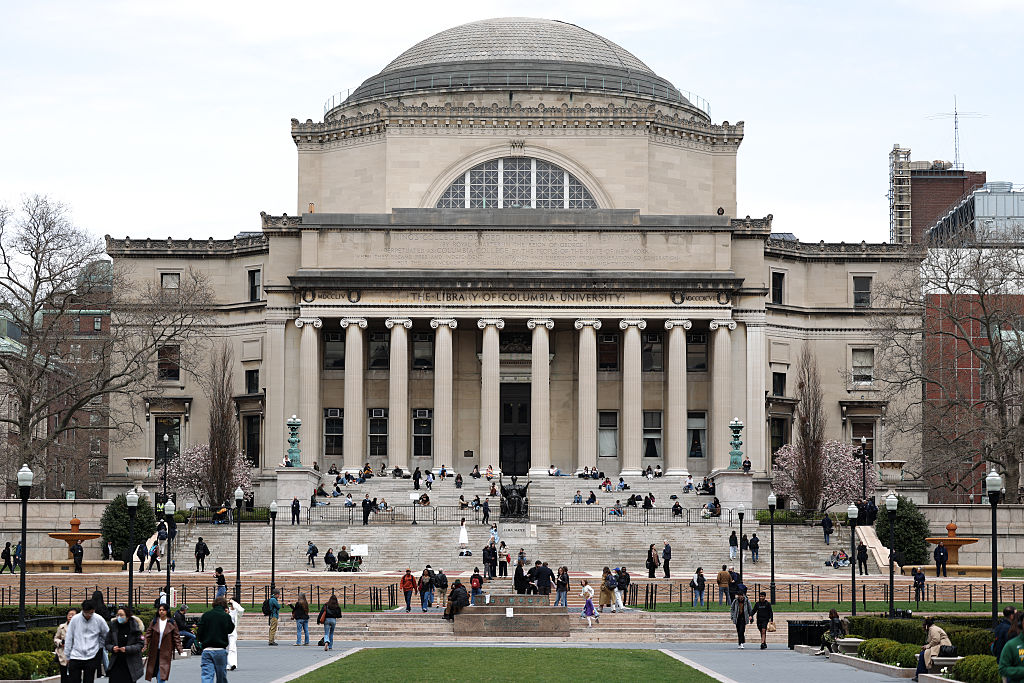
Columbia University, the site of some of the fiercest anti-Israel protests over the last two years, is back in the Trump administration’s good books. Will other elite schools follow its example?
On Wednesday, the university announced that it had reached a settlement with the federal government, agreeing to pay more than $200 million in fines and committing to reforms aimed at combating antisemitism on campus. In exchange, the Trump administration ended federal investigations into Columbia and reinstated federal grants to the Ivy League school. News of the deal came as initial arguments began in Harvard University’s lawsuit against the government for allegedly freezing federal research funding unlawfully.
Harvard has, at least for now, kept up the legal fight against the White House’s campaign to reshape higher education. But as the Massachusetts university continues parallel negotiations that could lead to a settlement, Columbia’s agreement with the federal government might represent a light at the end of the tunnel—or a warning.
“This agreement resolves multiple federal agency investigations and protects Columbia’s academic mission, research enterprise, and independence,” said Claire Shipman, Columbia’s acting president, in a statement announcing the deal.
It came at a high price. Columbia agreed to shell out $200 million over three years to the federal government, in addition to paying $21 million to the Equal Employment Opportunity Commission (EEOC) to settle claims of workplace harassment based on religion—a deal touted by the commission as the largest such public settlement in nearly two decades. “The Trump administration is committed to combatting antisemitism wherever it rears its head, including the workplace—and universities are workplaces too,” said acting EEOC chair Andrea Lucas.
But the settlement’s terms went beyond monetary considerations. In addition to appointing an official liaison to Jewish and Israeli students, the university will name new faculty with joint positions in both the university’s Institute for Israel and Jewish Studies and the departments of economics, political science, or the School of International and Public Affairs (SIPA). Columbia also agreed to adopt the International Holocaust Remembrance Alliance’s definition of antisemitism, which includes some forms of anti-Israel speech.
The agreement also affirmed reforms to Columbia’s disciplinary policies. Just last week, the university suspended or expelled nearly 80 students who were involved in a May demonstration in which masked, anti-Israel protesters occupied part of the school’s main library, damaged property, and clashed with New York City police.
In return, Columbia gained some breathing room. The roughly $400 million in federal funds for research that had been frozen by the Trump administration will now be released, and the university will once again be considered for future grants. Columbia will not have to admit fault in any of the accusations leveled against it, and according to the agreement, the government will not have influence over “faculty hiring, university hiring, admissions decisions, or the content of academic speech.”
What constitutes influence may be a matter of debate, however. In the deal, Columbia reaffirmed its March decision to appoint a senior vice provost charged with reviewing the school’s Middle East studies programs to ensure that their curricula are “comprehensive and balanced.” In a document that purports to be legally binding, that proviso could expose the university to future federal interference, argued Tyler Coward, the lead counsel for government affairs at the Foundation for Individual Rights and Expression. “To have the federal government make this agreement with an institution, to have this academic receivership, is unprecedented,” he told TMD. “It really is a real threat to academic freedom on our campuses.”
As Columbia tries to turn the page on its differences with the Trump administration, Harvard has refused to give in to the White House in a battle over federal research funding. On July 21, Judge Allison Burroughs heard initial arguments in a hearing in which Harvard’s lawyers requested a summary judgment, a maneuver that allows a judge to rule that the facts of the case and the relevant law are so clear as to render a full trial unnecessary.
The Trump administration’s cuts of more than $2 billion in funding were “arbitrary and capricious,” Steven Lehotsky, the lawyer representing Harvard, argued and represented clear violations of the university’s rights under the First Amendment and Title VI of the Civil Rights Act. In response, Michael Velchik, a lawyer for the Trump administration, contended that the government was free to send or cancel research funding as it saw fit, in line with changing “agency priorities.”
Burroughs, who is also overseeing a case in which she temporarily blocked the Trump administration’s cancellation of visas for Harvard’s international students, seemed skeptical of the government’s claims, questioning whether cutting research funding was a legitimate solution to the alleged problem of campus antisemitism. “You’re not taking away grants from labs that could have been antisemitic, but just cut off funding in a way one could argue hurts Americans and Jews,” she told Velchik, who said that the government “vehemently disagreed.”
Burroughs also questioned the government’s determination that Harvard had engaged in discrimination against Jews. While the university itself issued an extensive report on the issue of antisemitism earlier this year, which included calling for steps to combat the problem, the government had done no such thing, claimed Burroughs. The White House’s lawyers had presented “no documentation, no procedure, no process to suss out whether they’ve [Harvard] taken enough steps,” to address the issue, she said, describing the implications of such an expedited process as “staggering” for constitutional law.
But even if the administration presents a more thorough investigation, it may not be able to pull millions of dollars from Harvard. Assuming that the university is found to be in clear violation of Title VI of the Civil Rights Act, which prohibits discrimination based on race or religion, it’s still an open question whether the government can then yank nearly all funding, said Coward. “That argument is a little unclear to me right now, the sense in which a campus protest in the quad affects federal funding for other things,” like research labs, he said.
However, any legal victory for Harvard could be a short-lived one, experts who spoke to TMD said. Columbia’s decision to strike a deal allowing it to sidestep a protracted legal battle may set the course for the other Ivy League institution. Harvard is reportedly still engaging in negotiations in the hopes of reaching a settlement with the Trump administration, with the president allegedly set on forcing the school to pay more than Columbia did in any eventual agreement.
At Columbia, administrators likely decided that the legal merits of their case were outweighed by the practical consideration of losing funding. “It could have been challenged in court,” David Pozen, a constitutional law professor at Columbia, told TMD. “But the main rejoinder I’ve heard from those at Columbia, who think we needed to try to get a deal, is that the government has so many different levers with which it can punish us that it would prove a Pyrrhic victory.”
Beyond freezing federal funding, the White House could have deployed the full range of measures it has either already enacted or threatened to enact against Harvard: blocking the visas of international students, investigating the university’s accreditation, threatening the tax-exempt status of the school’s endowment, and even simply declining to give it research funding in the future.
The last threat is potentially the one that universities are least positioned to counter, said Pozen. If the government decides to award upcoming grants to other universities rather than Columbia, it would be “very hard to prove that the reason it didn’t happen was some impermissible retaliation,” he argued. For Columbia administrators, it appeared the prospect of future fights was not worth it.
Both Harvard and Columbia likely want to avoid a drawn-out court case, with depositions and legal discovery, said Frederick M. Hess, the director of education policy studies at the American Enterprise Institute, pointing to earlier investigations of universities by the Obama administration on Title IX grounds. “Generally [administrators are] worried about what’s going to come out in depositions and in courts,” he said. They’re also aware of the reputational harm from public attention: “You don’t want to be the person who is apologizing for Title VI or Title IX violations.”
And even if Harvard or other universities win tactical victories, the Trump administration has decisively shifted the balance of power in the higher administration landscape, Hess told TMD. “Strategically, the Trump administration has already won,” he argued, by making it clear that universities now risk enormous blowback from the federal government on matters related to racial diversity, affirmative action, and anti-Israel bias. “There’s no going back on a lot of this stuff because of the way it has become so visible and political.”
Other universities certainly seem to be preparing for years of financial and legal uncertainty. Brown University, which also faces a freeze in federal funding, on Monday took out a $500 million private loan. In a June 30 letter, Brown President Christina Paxson warned that the university would have to take “significant cost-cutting” measures in the face of “federal headwinds.”
In the coming weeks and months, Harvard’s next moves will likely be a major factor in determining where, exactly, those winds blow. “The point here is to establish a new template for dealing with our universities, and Columbia is step one,” Pozen told TMD. “But if Harvard cuts a deal anytime soon, then the template will be established that you deal with us, and if you don’t, we will crush you.”
Today’s Must-Read
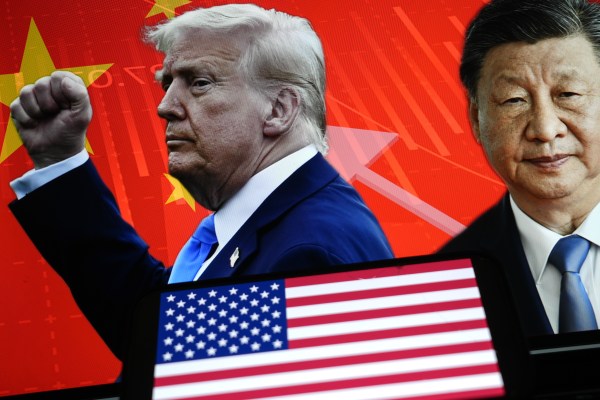
As Trade Deal Looms, Trump Goes Soft on China
Toeing the Company Line

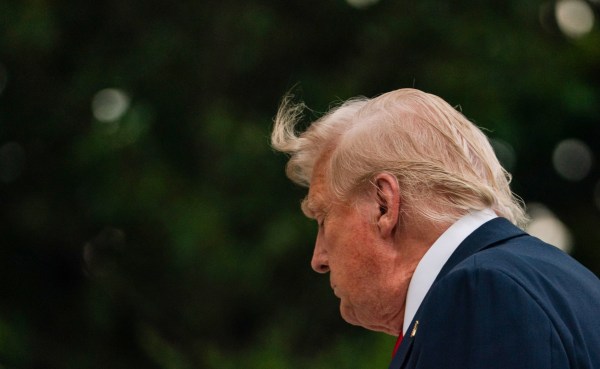
The Nero of Jamaica Estates
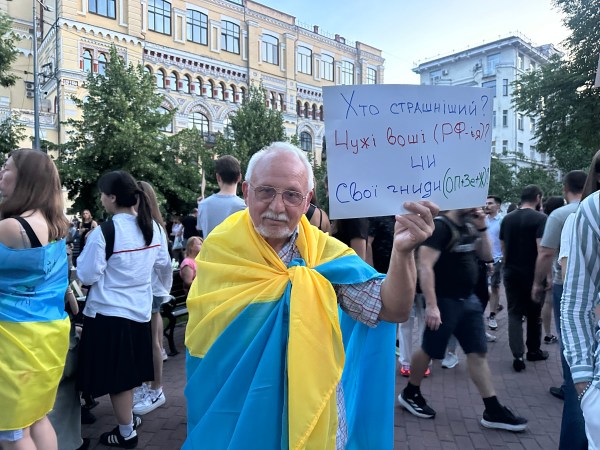
Ukraine’s Anti-Corruption Fight Hits a Crossroads
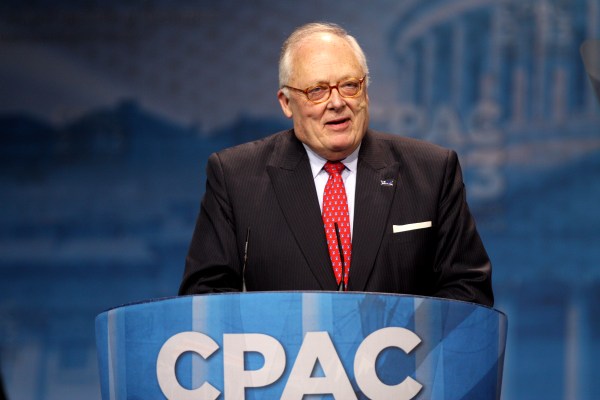
Preserving Ed Feulner’s Cheerful Conservatism
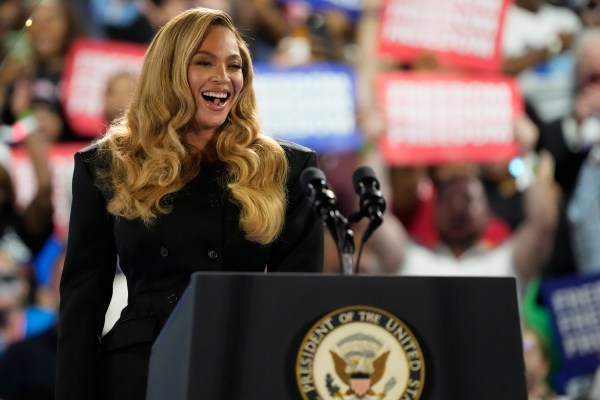
No, Beyonce Was Not Paid $11 Million to Endorse Kamala Harris

Will Ghislaine Maxwell Split the Circuits?
Worth Your Time
Writing for the Free Press, Eli Lake offered a full-throated defense of Billy Joel, who—despite failing to win the approval of rock critics—continues to be a favorite of famous musicians old and new. “Rock music is a fickle thing. There are some artists who will be forever cool like Bob Dylan, Elvis Costello, or Nirvana. And then there are the unapologetic sellouts, the stars that sold a stew of pabulum and clichés to millions of eager sheep. … At the top of this list of mock stars is Billy Joel. Or so the critics claim,” Lake wrote. “‘Billy’s melodies are better than mine,’ says Bruce Springsteen [in a new HBO documentary on Joel’s life and career]. Paul McCartney reveals that Joel’s ‘Just the Way You Are’ is a song he wished he had written. Most astonishing of all, Nas, one of hip-hop’s titans, couldn’t stop gushing about one of Billy Joel’s schmaltziest hits, ‘Piano Man,’ with its lilting waltz rhythm and poignant sketches of the barflies Joel encountered when he played at a dive bar in Los Angeles. ‘“Piano Man” is a mirror facing a mirror,’ the rapper says. ‘You can just see infinite reflections.’ He’s right. The lyrics of ‘Piano Man’ are sheer poetry.”
Presented Without Comment
CNBC: Trump Says He Cut Ties With Jeffrey Epstein Because ‘He Stole People Who Worked for Me’
“He hired help, and I said, ‘Don’t ever do that again.’ He stole people that work for me. I said, ‘Don’t ever do that again.’ He did it again,” Trump said.
Epstein then became “persona non grata,” Trump said.
“I threw him out, and that was it. I’m glad I did, if you want to know the truth,” he said.
Also Presented Without Comment
NBC News: Trump Envisions a Global Baseline Tariff Rate of 15 to 20 Percent
In the Zeitgeist
We tend to agree that the Piano Man is criminally underrated and Billy Joel: And So It Goes, a two-part documentary released by HBO Max on Friday, did little to convince us otherwise.
Let Us Know
Billy Joel: rock ’n’ roll poser or the real deal?
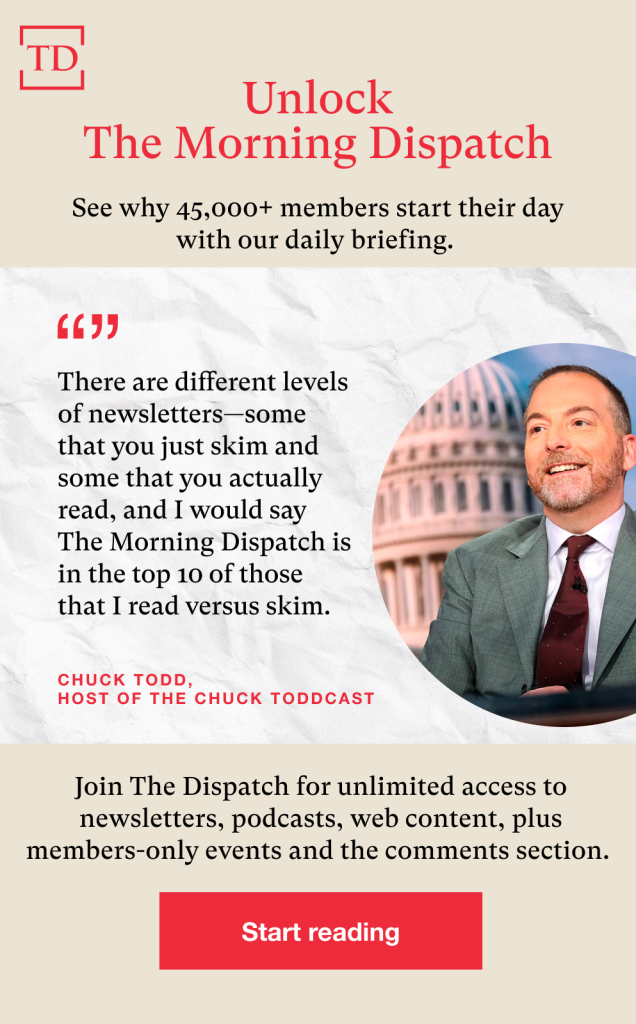




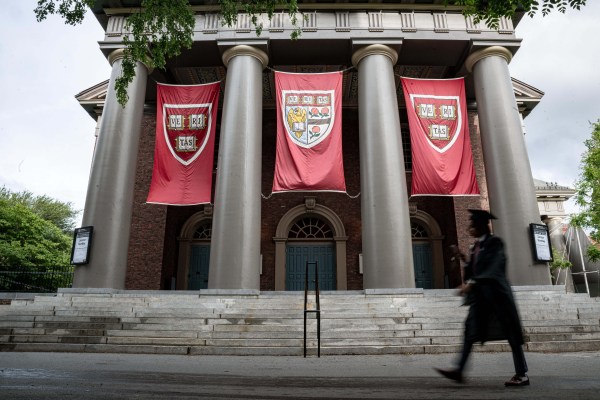



Please note that we at The Dispatch hold ourselves, our work, and our commenters to a higher standard than other places on the internet. We welcome comments that foster genuine debate or discussion—including comments critical of us or our work—but responses that include ad hominem attacks on fellow Dispatch members or are intended to stoke fear and anger may be moderated.
With your membership, you only have the ability to comment on The Morning Dispatch articles. Consider upgrading to join the conversation everywhere.